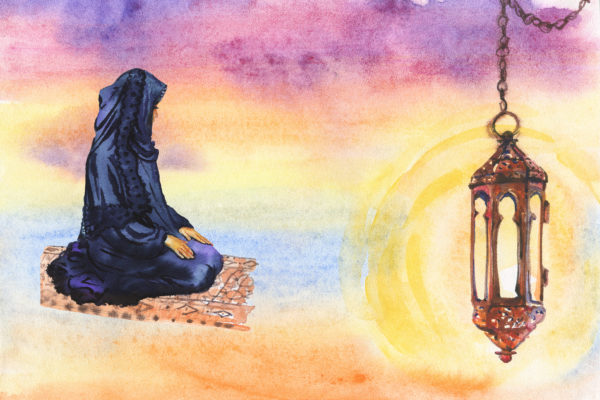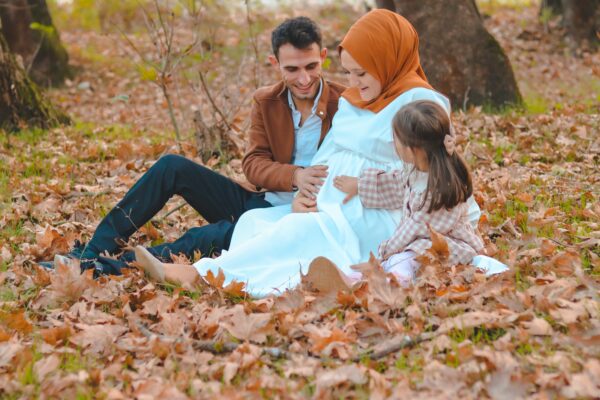A husband must finance all of his wife’s necessary expenses. Nafaqah or nafkah is the Islamic legal term for the obligatory financial support a husband must provide for his wife during marriage and for a time after divorce known as Iddah.
A husband must finance all of his wife’s necessary expenses. Nafaqah or nafkah is the Islamic legal term for the obligatory financial support a husband must provide for his wife during marriage and for a time after divorce known as Iddah.
In Islam, women are given greater financial rights and security compared to men. A married Muslim woman is not required to spend money from her income or property on her husband or household.
A groom must present a marriage gift to the bride, which is also known as Mahr (dowry). The woman can choose her Mahr. It is negotiated before a Muslim couple’s marriage and often declared in written form.
Most brides will normally be gifted money or gold. This is mentioned in the Quran: “And give the women (on marriage) their dower as a free gift; but if they, Of their own good pleasure, remit any part of it to you, take it and enjoy it with right good cheer”[Quran 4:4]
There are no upper or lower limits for Mahr but Islam encourages a lower Mahr so there is no financial burden before beginning marriage. Women are not expected to pay Mahr to their husbands.
The Prophet (peace and blessings of Allah be upon him) also said:
‘’The best of mahrs is the simplest (or most affordable).’’
Narrated by al-Haakim and al-Bayhaqi, classed as sahih by al-Albani in Sahih al-Jaami’ 3279
Ibn ‘Abbas narrated that Imam Ali said:
I married Fatimah (may Allah be pleased with her) and said: ‘O Messenger of Allah, let me go ahead with the marriage.’ He said: ‘Give her something.’ I said: ‘I do not have anything.’ He said: ‘Where is your shield?’ I said, ‘I have it with me.’ He said, ‘Give it to her’.
Islamic scholars and Shariah law state that it is a husband’s responsibility to provide for his wife and family. Prophet Muhammad (pbuh) said:
“Every one of you is a shepherd and is responsible for his flock. The leader of people is a guardian and is responsible for his subjects. A man is the guardian of his family and he is responsible for them. A woman is the guardian of her husband’s home and his children and she is responsible for them.” [Muslim/Bukhari]
A husband must finance all of his wife’s necessary expenses. Nafaqah or nafkah is the Islamic legal term for the obligatory financial support a husband must provide for his wife during marriage and for a time after divorce known as Iddah.
Under an Islamic marriage contract, the husband is obliged to pay for his wife’s housing, food, medical expense and clothing during their marriage. If a husband does not pay Nafaqah it is a debt to the wife, which must be paid when possible.
Within modern society, there are a lot of materialistic expectations. A Muslim husband had to provide for necessities rather than luxuries, such as holidays abroad. Remember:
“But the father of the child shall bear the cost of the mother’s food and clothing on a reasonable basis” [al-Baqarah 2:233]
If a man is wealthy, he will naturally have the financial means to provide more for his family. But if a husband runs into financial hardship the wife is advised to live with what he can afford.
The Qur’an states: “Let the rich man spend according to his means; and the man whose resources are restricted, let him spend according to what Allah has given him” [al-Talaaq 65:7]
Prophet Muhammad (PBUH) advised a wife should not spend her husband’s money extravagantly. She should only spend what is needed for a reasonable standard of living.
‘Aa’ishah said: “Hind bint ‘Utbah, the wife of Abu Sufyaan, entered upon the Messenger of Allaah (peace and blessings of Allaah be upon him) and said, ‘O Messenger of Allaah, Abu Sufyaan is a stingy man who does not spend enough on me and my children, except for what I take from his wealth without his knowledge. Is there any sin on me for doing that?’ The Messenger of Allaah (peace and blessings of Allaah be upon him) said, ‘Take from his wealth on a reasonable basis, only what is sufficient for you and your children.’” (Narrated by al-Bukhaari, 5049; Muslim, 1714)
A Muslim husband must provide his wife with safe accommodation that he can afford to conceal her from people’s eyes, and protect her from the heat and cold so that she may go about her business, relax and keep her belongings in order. In Islam, a wife has the right to live separately from her in-laws.
Islam does not prevent or discourage women to have jobs. The reality is that many Muslim wives work and may have multiple streams of income. The wives are not obliged to disclose how much they earn and can spend it on whatever they choose.
In Islam, women share the same rights as men in regard to their earnings. The Quran states: “And do not covet that by which Allah has made some of you excel others; men shall have the benefit of what they earn and women shall have the benefit of what they earn;” (4:32).
Regardless of her affluence, she is not obliged to spend it on her household or her family. But if a wife contributes financially out of affection or wants to relieve her husband of any burdens and conceal his flaws, Allah (swt) would bless her for doing so.
The Quran states, “They are your garment, and you are a garment for them” [Quran, 2:187].
Islam has given Muslim women the right to make money and own property without the interference of men, including their husbands.
One of the major causes of marital problems is money so it’s important that married couples must be able to communicate to each other what they believe necessities and luxuries are to avoid unrealistic expectations in a marriage.
Husbands and wives need to work together to have a peaceful and loving marriage: “And among His signs is this, that he created for you mates from among yourselves, that you may dwell in peace and tranquility with them. And he has put love and mercy between your (hearts): Verily, in that are signs for those who reflect.”- [Quran. 30:21]





